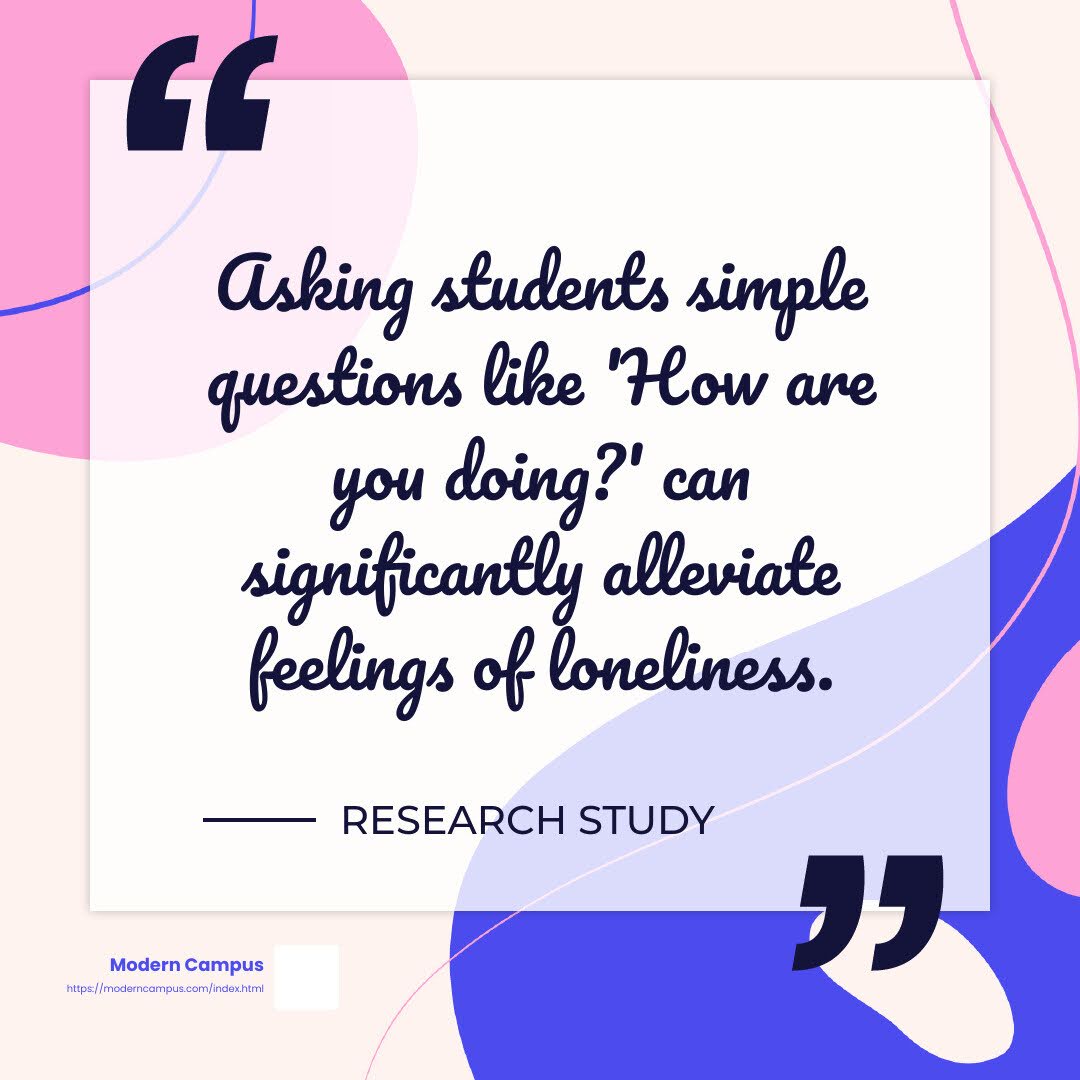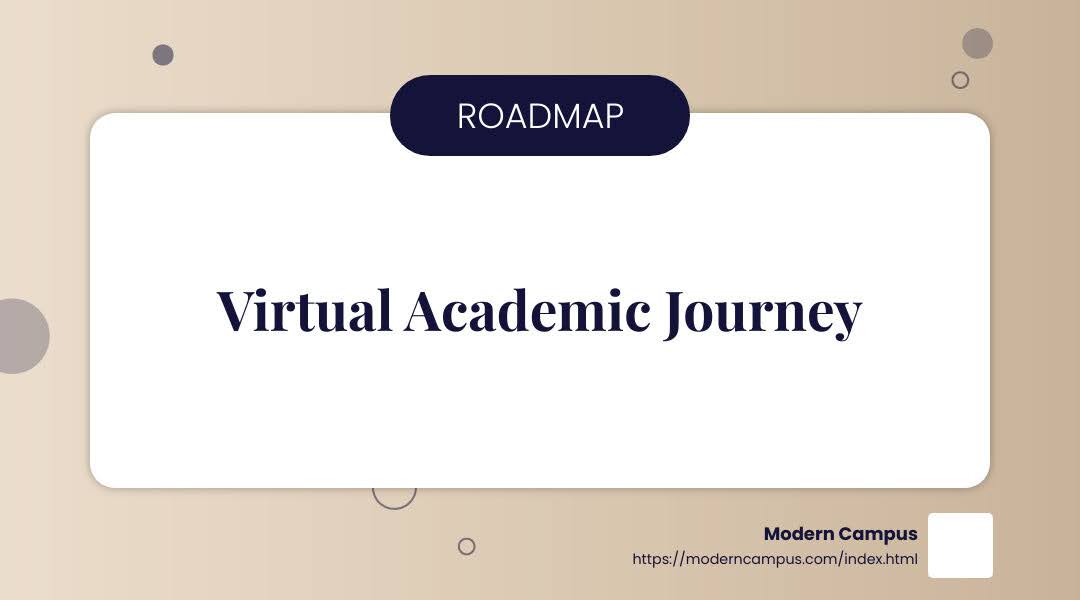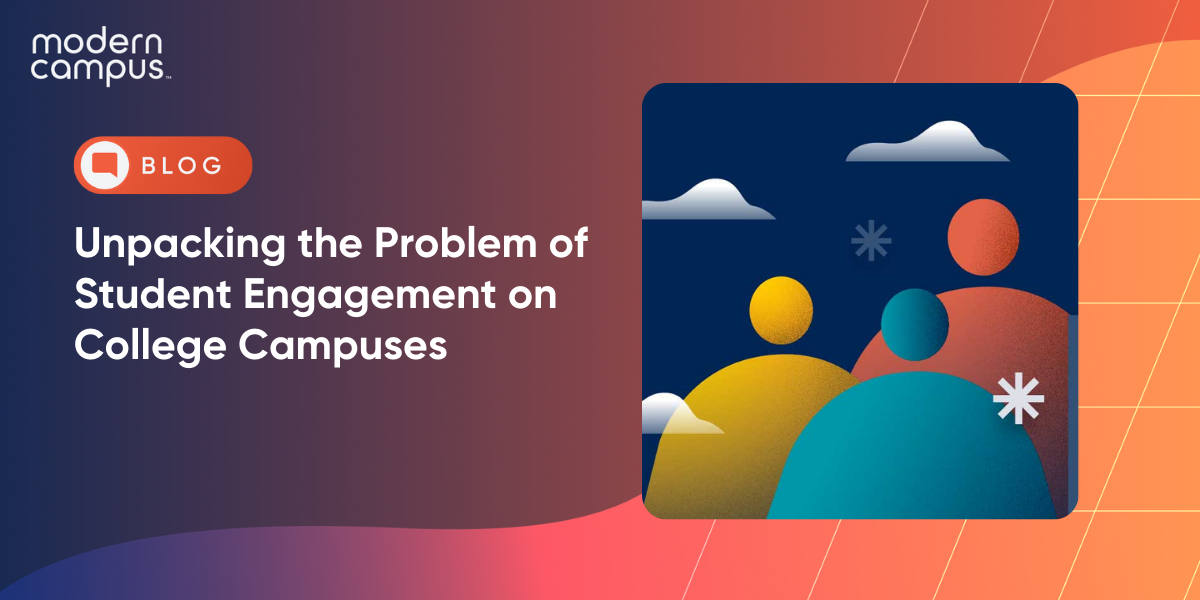Unpacking the Problem of Student Engagement on College Campuses
College campuses are busy with activity, yet many students still experience academic struggles and feelings of isolation. According to data, engagement is key to student satisfaction and success. However, traditional methods often fall short in today's digital age. This is where student engagement software steps in to make interactions meaningful and accessible.
Student engagement software is revolutionizing college campuses. Designed to boost student involvement and streamline administrative tasks, these tools offer a win-win for students, educators and staff.
With features like real-time feedback and community building, colleges can transform campus life. They create more inclusive and connected educational experiences, benefitting students and staff through improved satisfaction and reduced workloads.

Challenges in Student Engagement
College campuses are vibrant places, full of potential for learning and personal growth. But for many students, the experience can be daunting. Loneliness, academic struggles and navigating campus life are common problems.
Loneliness
Despite being surrounded by peers, many students feel isolated. Campus life can be overwhelming, especially for new students who haven't yet found their community. According to research, asking students simple questions like "How are you doing?" can make a big difference in addressing these feelings of loneliness.

Student engagement software offers solutions by creating virtual communities. These platforms help students find a sense of belonging through connections to others who share their interests.
Academic Struggles
Academic challenges are another major issue. Some students struggle to keep up with coursework or find it hard to engage with the material.
For example, some universities use analytics to track student engagement during shifts to online learning. They find that personalized content and real-time feedback help students stay on track. By using student engagement software, colleges can help students overcome academic problems by offering custom support.
Campus Life
Navigating campus life can be complex. From finding clubs to attending events, students often miss out on opportunities simply because they don't know where to start.
Statistics show that 65% of first-year students prioritize learning about campus clubs and organizations. Yet, without effective communication, these opportunities can slip through the cracks.
Student engagement software simplifies this by centralizing information. Students can easily find events, join clubs and engage with their campus community—all from their smartphones. This centralization improves their college experience and boosts their overall engagement and satisfaction.
By addressing these challenges, student engagement software plays a crucial role in creating a more connected and supportive campus environment.
Benefits of Student Engagement Software
Student engagement software transforms the way students interact with their educational environment by offering a range of benefits that address key challenges like personalization, accessibility and integration.
Personalization
One of the standout features of student engagement software is its ability to tailor the learning experience to individual needs. Personalization can make a huge difference in student success. With tools that adapt to each student's learning pace and preferences, students receive content that resonates with them.
For example, platforms provide a virtual roadmap for students. It can helpguide them through their academic journey with customized achievements and milestones. A personalized approach helps students stay engaged and empowers them to take charge of their education.
Accessibility
Another major benefit is access to learning resources anytime, anywhere. Student engagement software makes education more inclusive by breaking down geographical and physical barriers.
For non-traditional students, these platforms offer a flexible learning environment. They can participate in classes, access materials and connect with peers from any location. With this,learning is always within reach.
Integration
Integration with existing systems is crucial for seamless operation. Effective student engagement software connects with Learning Management Systems (LMS), Student Information Systems (SIS) and other educational tools. System integration streamlines processes, making it easier for students and faculty to access and manage information.
For instance, modern software solutions simplify event management and communication by bringing everything under one platform. A unified approach improves efficiency and ensures that students have a consistent and cohesive experience—whether they're checking their attendance or joining a club.
By offering these benefits, student engagement software tackles the core issues faced by students on college campuses. This ultimately paves the way for a more engaging and supportive educational environment.
How Student Engagement Software Solves Engagement Issues
Student engagement software is a game-changer for tackling common issues on college campuses. Let's explore how it addresses these challenges with features like virtual roadmaps, student lifecycle management and personalized content.
Virtual Roadmap
Student engagement software provides a virtual roadmap for learners' academic journeys. It guides students from enrollment to graduation, ensuring they don't lose their way. A structured path with clear milestones and achievements keeps students focused and motivated.

By offering clear insights into degree requirements, upcoming classes and scheduling options, students can make informed decisions about their academic path. In addition, these systems integrate real-time notifications about important deadlines, milestones and academic opportunities.With this, learners stay on track and have the support they need to reach their educational goals.
This holistic approach empowers students to take ownership of their learning experience, fostering higher engagement and success throughout their academic careers.
Student Lifecycle Management
Managing the student lifecycle is about understanding and supporting students at every stage of their education. Engagement software tracks students' progress, helping educators identify who might be struggling and who is excelling.
With this data, faculty can offer timely support or additional challenges, enhancing the overall learning experience. This proactive approach ensures that students receive the help they need when they need it, improving retention and success rates.
Personalized Content
Personalized content is key to keeping students engaged. By tailoring educational materials to individual interests and learning styles, engagement software makes learning more relevant and exciting.
For instance, if a student shows interest in environmental science, the software can suggest related courses, articles or events. Customization makes learning fun and encourages students to explore new areas, broadening their academic horizons.
Student engagement software addresses major campus challenges by offering a virtual roadmap, managing the student lifecycle and providing personalized content. These features create a supportive and engaging environment that helps students thrive.
Key Features of Effective Student Engagement Software
Student engagement software comes packed with features designed to improve campus life. Let's look at three key features: event management, attendance tracking and communication tools.
Event Management
Events are a big part of college life. Whether it's a club meeting, a guest lecture or a social gathering, events help students connect and learn outside the classroom. Student engagement software simplifies event management by making it easy for students to find, register for and set reminders for events.
With streamlined event processes, students can focus on participation rather than logistics, enhancing their overall college experience.
Real-Time Communication Tools
The integration of real-time communication tools, such as automated email and text messaging, ensures students receive timely updates about important deadlines, class changes or campus events. By reaching students on their mobile devices, modern platforms foster a more responsive and engaged campus environment.
These tools help students stay informed and encourage active participation in academic and extracurricular activities.
Interactive Learning Environments
Modern software solutions offer interactive learning environments through features like online discussion boards, virtual classrooms and collaborative projects. These interactive elements enable students to engage with peers and faculty—both in-person and remotely—which is crucial for fostering a sense of community on campus.
By creating a more connected and responsive learning environment, these platforms help colleges and universities tackle the challenge of keeping students engaged, ultimately leading to improved retention, academic success and overall satisfaction.
The key features of effective student engagement software play a vital role in creating a vibrant and engaging campus environment. They streamline processes, foster connections and ensure students have the resources they need to succeed.
Effectively Engage Students on Campus With Technological Solutions
By leveraging student engagement software, institutions can provide a personalized and engaging experience that keeps students connected to their campus community. Features like event management, real-time communication tools and personalization help foster a sense of belonging and ensure students remain active participants in their education.
The benefits of integrating such software are clear: improved student retention, higher satisfaction levels and better academic outcomes. As students navigate their educational paths, they are empowered to take charge of their learning, leading to a more fulfilling and successful college experience.
Advanced software solutions are at the forefront of enhancing student engagement through innovative solutions. A focus on the learner-to-earner lifecycle ensures that students are not just prepared for academic success but are also equipped with the skills and experiences needed for their future careers.
Modern Campus offers a comprehensive suite of tools designed to address the unique challenges faced by higher education institutions. By streamlining operations and enhancing the student experience, we help colleges and universities create environments where students can thrive.
Let us help you create a modern learner experience that prepares your students for the future. Schedule a demo today.
Last updated: January 21, 2025

